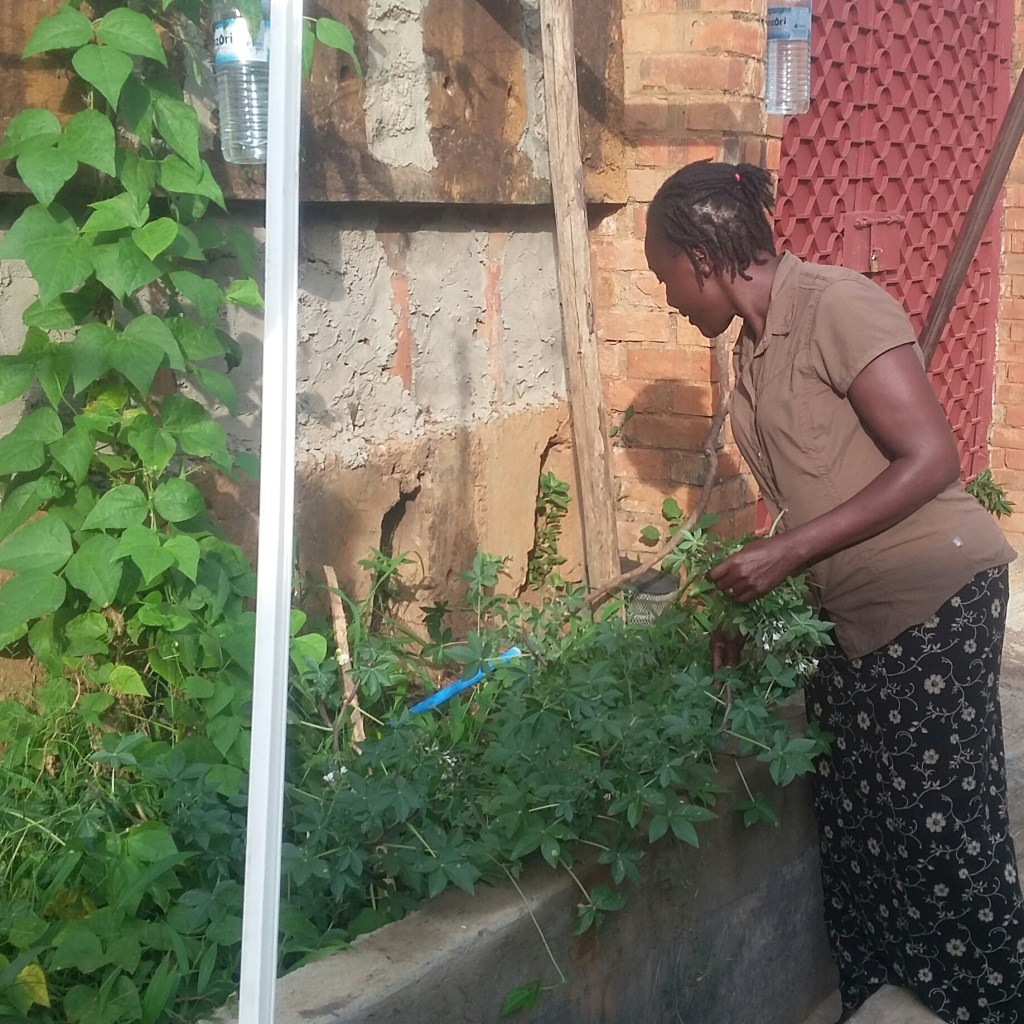It is not only France’s Emmanuel Macron who blames African women for ‘underdevelopment’ it seems. The same racist and sexist views it would appear dog Uganda’s policies.
Take for example the view of the National Resistance Movement Organisation (NRMO) Administration that an increase in the number of people who are food insecure in Uganda is the consequence of high population growth.
Here below is an extract from a “Policy Report on Agriculture in Uganda – a cultural anthropological perspective” that describes and debunks that particular view of the NRMO:
The most recent agriculture sector development and investment strategy (2010), for which its implementation cycle concluded in June 2015, was titled:
Agriculture for Food and Income Security – Agriculture Sector Development Strategy and Investment Plan: 2010/11-2014/15.
Ironically, however, that strategy revealed the insignificant attention that the NRMO Administration gives to genuinely ensuring food and nutrition security at the grassroots at the household level.
The strategy was likely premised on the NRMO Administration’s commitment to the Maputo Declaration on the Comprehensive Africa Agriculture Development Programme (CAADP) that it would adhere to the “principle of agriculture-led growth”; growth in terms of GDP.
The commitment of the NRMO Administration to the CAADP predisposed it to perceive people as the problem or the stumbling block to the achievement of its commitment. In the strategy the NRMO Administration lamented:
With 73 percent of all households and the majority of the poor in Uganda depending directly on agriculture for their primary livelihoods, this is a serious challenge in the drive to eradicate poverty.
Depending directly on agriculture, as eloquently articulated by Sen (1999), is one of the ways in which people can “establish ownership over an adequate amount of food” for themselves.
It explains why transnational corporations invest in agriculture for the livelihoods of their owners – Wilmer International and Bidco invested in oil palm; Nile Breweries in Epuripur sorghum; and Madhavani in sugarcane; all for profit and for the livelihoods of their owners.
The NRMO Administration instead blames its own citizens, the majority who depend directly on agriculture, for the existence of poverty in the country. Within the Strategy, the NRMO Administration further laments:
The number of people who are food insecure has increased from 12 million in 1992 to 17.7 million in 2007, an obvious consequence of high population growth rate.
It insinuates that increase in population growth is as a result of high fertility levels of those who depend directly on agriculture. Whereas, high population growth may intensify food insecurity; it is not necessarily the obvious main trigger of food insecurity.
It is the finding of the NRMO Administration (2015), after all, that:
Food availability is generally not a limiting factor (to food security) in most regions of Uganda but it is food access and utilization (that) are the major limiting factors.
In effect, the NRMO Administration acknowledges that agricultural production for food within the country, ideally, produces sufficient food to feed all; but it is the manner in which food is distributed and shared post-harvest that causes millions to be food insecure. One of the major ways in which food produce is distributed post-harvest is through trade.


2 responses to “Food Trade, Population & Food Insecurity”
This topic of food and blaming it on our children from without, is a serious issue. The continent of Africa’s densely population is 87pple/sqKm while Europe is twice that at 188pple/sqKm. https://www.geolounge.com/continents-population-density/
DRC’s size is about 7 times that of Germany. http://www.mylifeelsewhere.com/country-size-comparison/democratic-republic-of-congo/germany
But Germany has 81 million people (608 thousand more people live in Congo, Democratic Republic Of).
Africa is bigger than the size shown on the world map. http://kai.sub.blue/en/africa.html
Africa shouldn’t be dragged into this problem: “Dropping birth rates threaten global economic growth”- https://www.cbsnews.com/news/dropping-birth-rates-threaten-global-economic-growth/
Macron needs to go to help Japan where there is a real problem- http://www.independent.co.uk/news/world/asia/japans-falling-birth-rate-posing-serious-problems-for-economy-a7770596.html
Let him go to where there is The demographic time bomb in action and defuse it, we don’t need his help- http://www.businessinsider.com/japan-fertility-crisis-2017-4
As for Uganda expecting to increase foreign trade, the first thing is to produce what the world demands, and for sure it is not GMO crops. I’m not sure how this goes with unwanted GMO crops, “World Trade Organisation must serve Uganda’s needs” – http://www.monitor.co.ug/OpEd/Commentary/World-Trade-Organisation–must-serve-Uganda-s-needs-/689364-4227632-format-xhtml-p53v13z/index.html
LikeLiked by 1 person
Thank you erfor taking the time to respond in such an eloquent manner while at the same time sharing relevant information. Let us continue not to only others to peddle falsehoods and factoids about us as African peoples and about our motherland.
LikeLike